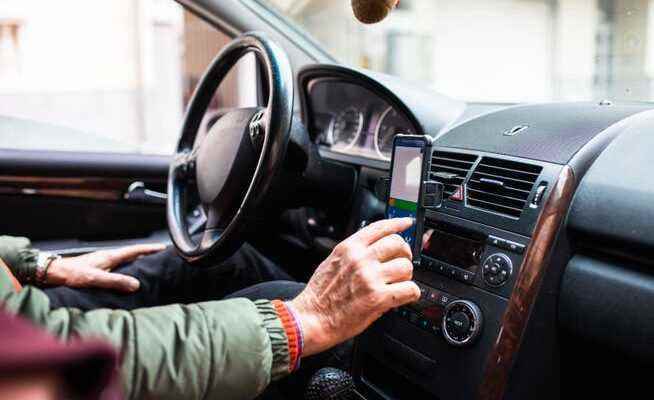After the Federal Court ruling, the travel agent and the canton of Geneva have reached an agreement. The chauffeurs now even have a retrospective right to wages – if they want that.
Geneva and Uber have been fighting a judicial and political battle for a long time.
Geneva’s chief economic officer, Fabienne Fischer, made no secret of her satisfaction when she appeared in front of the media at an impromptu press conference on Friday afternoon: “It’s a very, very nice result,” she said, beaming. The dictum was clear: We, the combative canton, have brought the globally active travel agent Uber to its knees.
Of course, the most important chapter in this emotionally charged saga was written by the Federal Supreme Court: In a judgment published at the end of last week, the judges of the last instance defined that Uber drivers are to be regarded as employees – and not as self-employed – and are therefore entitled to a regular wage and have social benefits. Geneva then prohibited Uber from any chauffeur activity in the canton “until the company complies with the legal provisions”.
This situation is now coming to an end, and Uber is now allowed to operate again in the canton of Geneva. This is the result of tough negotiations, the “success” of which both parties immediately claimed for themselves. Uber has acknowledged in writing the legal provisions mentioned by the Federal Supreme Court, writes the Economic Department.
No longer your “own boss”
Geneva Uber drivers are therefore no longer allowed to “be their own boss”, as the travel agent puts it. However, the drivers are not employed directly by Uber, but by a third-party company – which company was not mentioned. These are responsible for ensuring that the drivers receive (at least) the Geneva minimum wage of CHF 23.70 per hour and are covered by social security law. This is also accompanied by provisions such as working hours and rest periods or safety measures.
However, it can be assumed that by no means everyone who has previously driven for Uber now wants to be employed. Uber says that “the vast majority” of its drivers have voted in polls and in a petition to remain independent. The coming months will show whether this was just a means of political pressure or whether the number of chauffeurs in Geneva will actually drop drastically. For its part, the canton will ensure that third-party companies (and Uber towards them) behave in accordance with the law, said State Councilor Fischer. A similar model already exists for Uber Eats drivers.
Drivers must report in writing
Anyone who has previously driven for Uber in Geneva is now also entitled to claim (unpaid) salaries and social security contributions for the past. However, the drivers have to report individually to Uber, “with a simple letter”, as the head of economic affairs Fischer emphasized. Why did the canton – contrary to what was originally communicated and as now emphatically demanded by the Unia trade union – not insist that Uber automatically pay these “debts”? According to Fischer, Uber has been able to make it credible that some drivers have no interest in “looking too closely into the past”.
One thing is clear: the Geneva model only applies to this one canton. It can be assumed that parliaments and governments in the rest of Switzerland are (or were) looking very closely to the west. In order for the drivers to be employed there, however, respective legal changes will be necessary. In any case, Uber makes no secret of the fact that the company will not be active beyond the changes and additional functions that have already been made: “We are not planning such a restrictive model as in Geneva for the time being in other cantons,” says a communiqué unequivocally.
